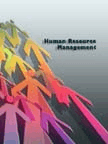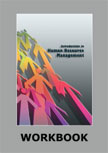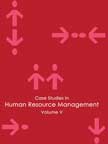Human Resource Management - Best Practices at Marriott International
|
|
ICMR HOME | Case Studies Collection
Case Details:
Case Code : HROB064
Case Length : 18 Pages
Period : 1997-2004
Pub Date : 2004
Teaching Note :Not Available
Organization : Marriott International
Industry : Hospitality
Countries : USA
To download Human Resource Management - Best Practices at Marriott
International case study
(Case Code: HROB064) click on the button below, and select the case from the list of available cases:

Price:
For delivery in electronic format: Rs. 500;
For delivery through courier (within India): Rs. 500 + Rs. 25 for Shipping & Handling Charges
»
Human Resource, Organization Behavior Case Studies
» HRM Short Case Studies
» View Detailed Pricing Info
» How To Order This Case
» Business Case Studies
» Area Specific Case Studies
» Industry Wise Case Studies
» Company Wise Case Studies

Please note:
This case study was compiled from published sources, and is intended to be used as a basis for class discussion. It is not intended to illustrate either effective or ineffective handling of a management situation. Nor is it a primary information source.
Chat with us

Please leave your feedback

|
|




<< Previous
Excerpts Contd...
Employee Retention and Welfare Initiatives
|
Retaining employees in the hospitality industry was vital as the cost of
recruiting and training new employees was very high. Marriott operated in an
industry where every day counted and weekends and holidays generated more
business than weekdays.
Customer service had to be provided on a 24/7/365 basis. The implication was
that employees had to go through a hectic work schedule; an average work week
lasted more than 50 hours. With the increasing work load due to rising customers
in the late-1990s, several key managers at Marriott left.
|

|
They wanted to devote more time to their personal lives and
their jobs at Marriott were not helping the cause.
Facing this challenge, Marriott launched a new program called
Management Flexibility in February 2000 on a pilot basis at three of its hotels.
The aim was to assist Marriott's managers in balancing their professional and
personal lives, without negatively affecting customer service or the company's
financials...
Grievance Redressal System
By the mid-1990s, Marriott had a comprehensive complaint resolution system
in place, known as the Guarantee of Fair Treatment (GFT), to ensure that
employee grievances were addressed.
Under GFT, complaints passed through
successive stages in Marriott's hierarchy, starting with the immediate
superior, depending on whether or not the said employee was happy with the
redress response given at each stage.
However, given the decentralized nature of Marriott's operations, and with
managers handling several tasks, resolution of complaints through GFT did
not quite produce the desired results.
It, therefore, decided to try new
methods of complaint resolution while continuing with GFT. These methods
included mediation, a toll-free hotline and peer-review...
|
|
The Benefits Reaped
Marriott's efforts over the decades to develop an employee-friendly
work place earned it widespread recognition in the hospitality
industry. The awards it received for 'the best place to work' were
testimony. (Refer Exhibit IV for awards received by Marriott). The
company reaped benefits like higher employee satisfaction and less
turnover. Employee satisfaction could be gauged from the 2003
Associate Opinion Survey, in which 90% of employees surveyed
expressed great pride in working for Marriott... |
Exhibits
Exhibit I: Marriott's Culture - The Marriott Way
Exhibit II: Programs For Recruitment Of Frontline Employees
Exhibit III: Marriott's Recruitment Advertisement (2003)
Exhibit IV: Awards Received By Marriott
|
|










